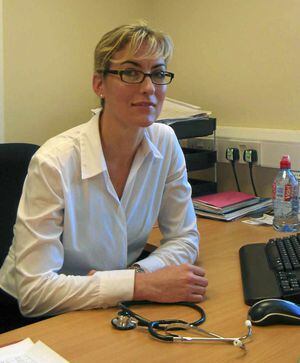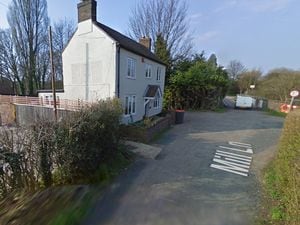Shropshire GPs say health funding is unfair
Doctors in Shropshire are facing a unique challenge. The combination of rurality, deprivation, a rapidly ageing population and an increase in people with long-term conditions are factors rarely seen elsewhere in the country.

It makes delivering healthcare in Shropshire very expensive.
But health officials believe that instead of Shropshire being looked on more favourably because of these challenges, it is actually losing out to urban areas.

An increase in funding is, they argue, so small that when rising costs and inflation are taken into account it actually represents a cut of millions of pounds over the next five years.
That has led Dr Caron Morton, accountable officer with Shropshire Clinical Commissioning Group, which represents all GP practices in the Shropshire area and buys and monitors local health services such as the hospitals, to directly challenge the government to think again about the way the county's funding is allocated.
She has been joined by Professor Rod Thomson, director of public health for Shropshire, who says that the public health grant for Shropshire equates to £29 per person. Westminster, he says, gets £133. Kensington and Chelsea receives £130.
The government recently announced the funding the CCG will receive for the next five years. As part of that settlement, it will receive £347 million to pay for a wide range of health services over the next 12 months.
Dr Morton says in real terms, the settlement represents a £16m cut over the five years at a time when costs are increasing.
"We were surprised and indeed shocked when the announcement was made, and since then we have been looking carefully at the very complex data that lies behind the big figures," she said.
"We appreciate there are spending pressures everywhere, but it is clear to us that Shropshire is losing out due to its unique health profile. We have a combination of rurality, deprivation, a rapidly ageing population and an increase in people with long-term conditions.
"Those factors rarely come together elsewhere and it means delivering healthcare in Shropshire is very expensive compared to other areas of the country."

By contrast, the neighbouring Telford and Wrekin CCG was not unhappy with its funding. But that does not mean the area is without its own challenges.
David Evans, chief officer of Telford and Wrekin CCG said: "We were reasonably satisfied with our funding allocation for this year. However we are still faced with a number of challenges and will have difficult considerations to take.
"The particular issues faced in Telford and Wrekin concern deprivation and the growing number of young people growing up in deprived circumstances. These are conditions linked to a number of very challenging health conditions." Dr Morton believes Shropshire is being disadvantaged by changes to the complex funding formula used to allocate health resources, and a reduced importance being given to the age profile of local populations.
She pointed to recent high-profile cases involving ambulance response times in the county to illustrate the difficulties faced.
Last week ambulances and CCG bosses were forced into talks after the ambulance service warned it might start taking patients to the nearest hospital rather than the one that offered the best treatment unless more money was spent on the service.
Dr Morton said: "It is quite obvious that ambulances need to travel longer distances to reach the best facilities to treat patients in a large rural area. It is an example of where we would like to increase funding if we had the financial resources."

Professor Thomson said: "If you look at the figures for the public health grants to different authorities, you can see that generally rural areas receive a much lower grant per head than the more urban authorities. For example the public health grant for Shropshire is £29 per head, well below the national average of £49 per head.
"In contrast, Westminster receives £133 and Kensington and Chelsea receives £130 per head respectively.
"There are unique challenges in rural public health – the sparsely populated areas and dispersed market towns, all need to be catered for, in many cases individually."
Shropshire councillors Karen Calder, cabinet member for health and Cecilia Motley, spokeswoman for rural affairs and chairman of the Rural Services Network, support the comments of the two health chiefs.
In a statement, they said: "As a council we have been lobbying hard for some time about our rural communities being disadvantaged by changes to the public health grant formula.
"The responses from Shropshire's recent rural health survey will help us identify and address the special challenges faced by rural communities. We will ensure these findings are made available to members and MP's in support of our aim to eliminate health inequalities and help to make a positive difference to the lives of local people."





